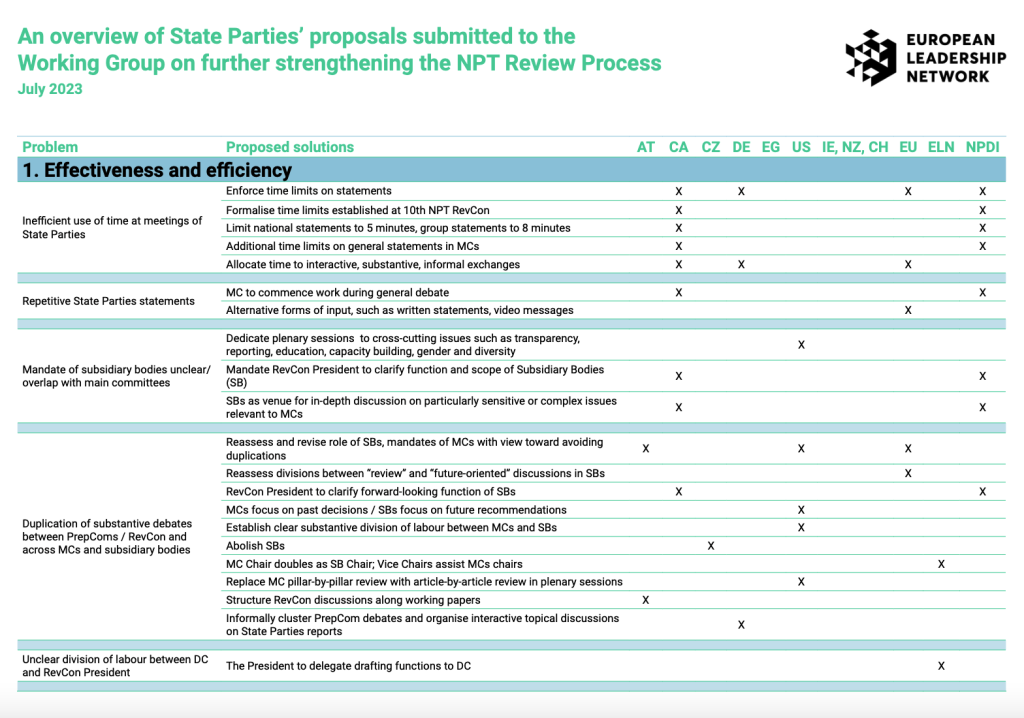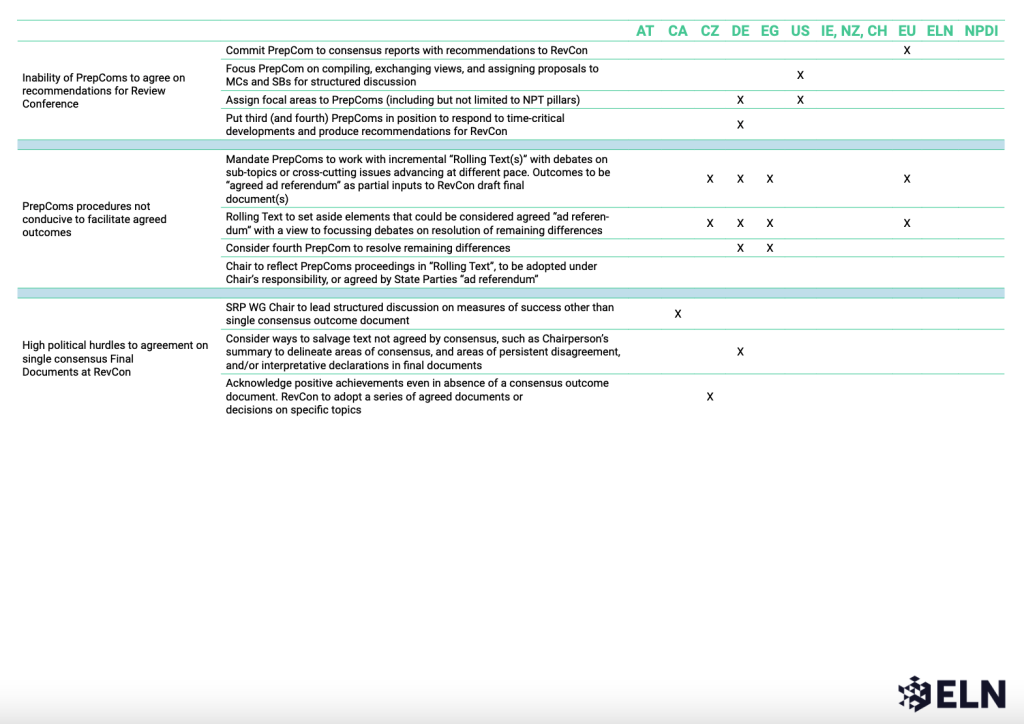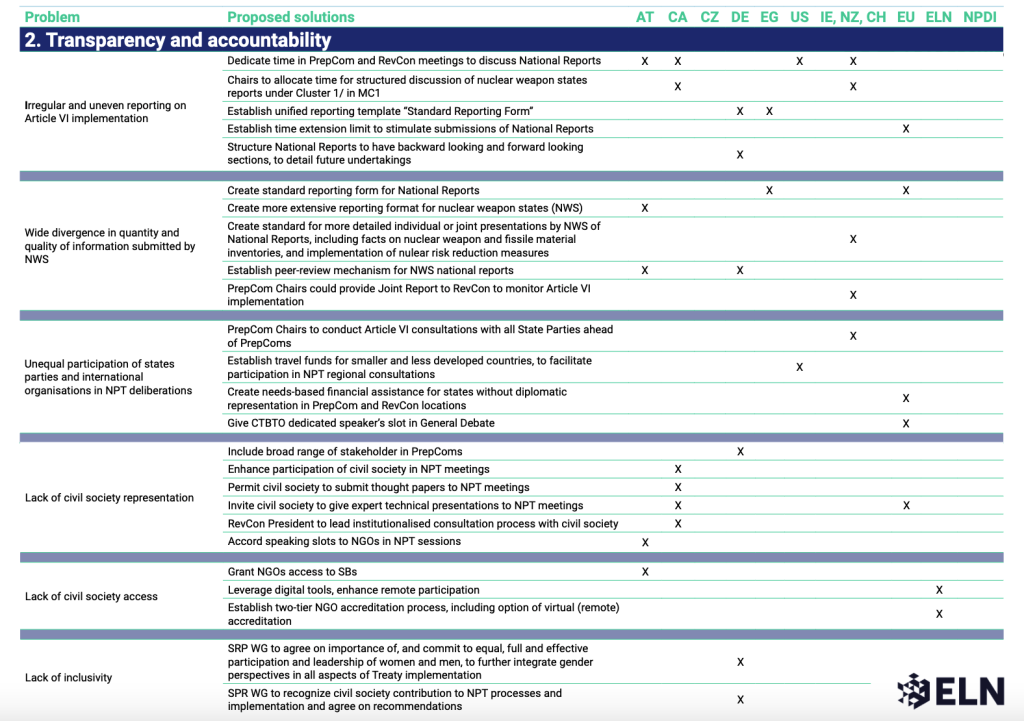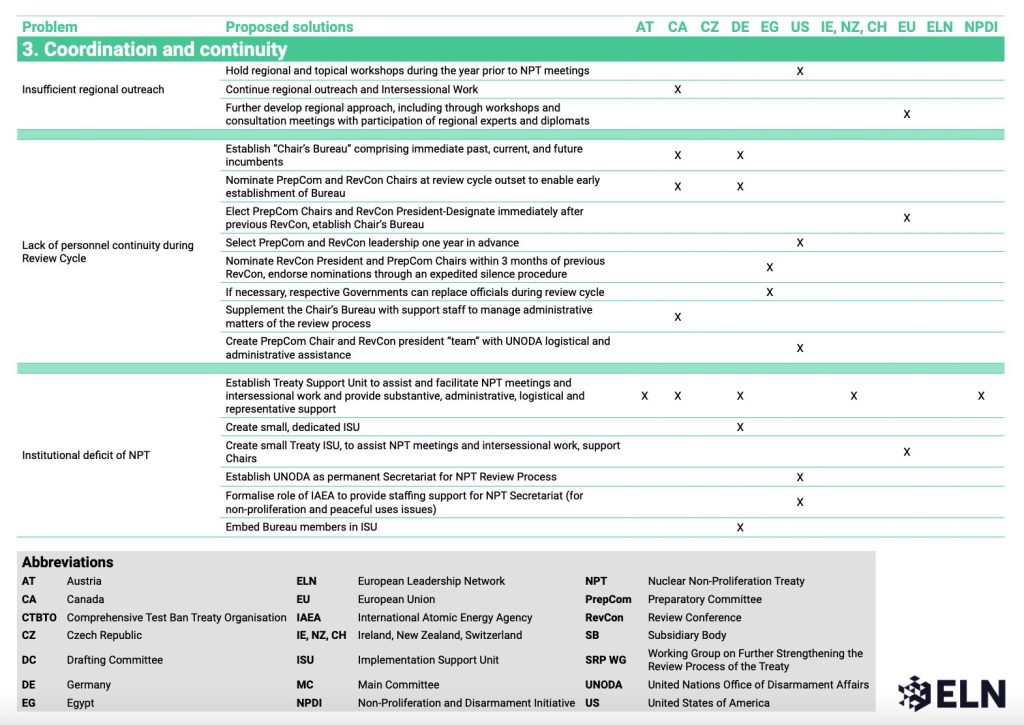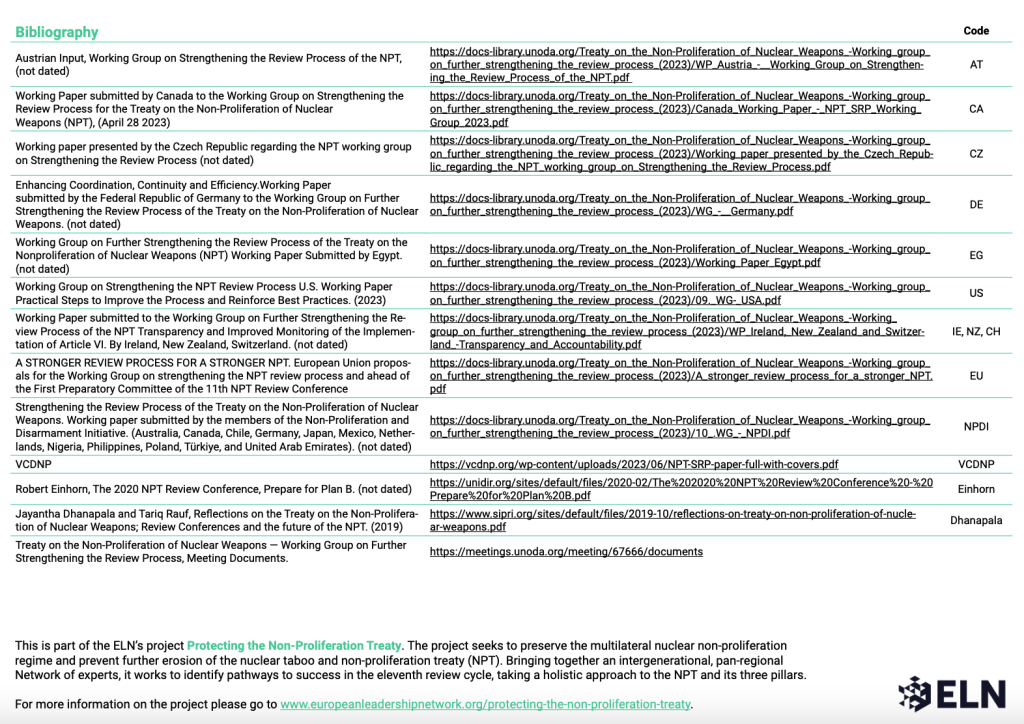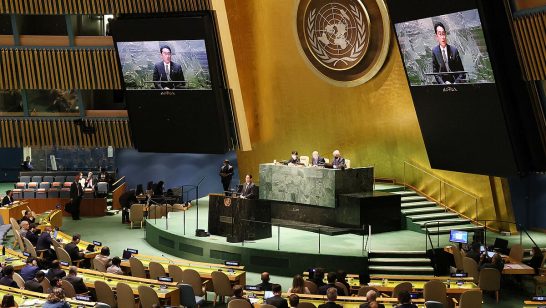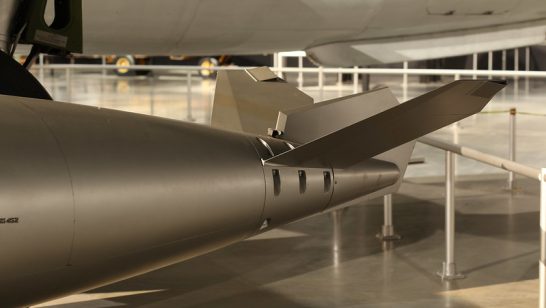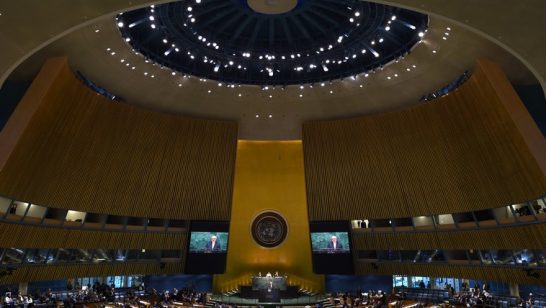This week, the Working Group on further strengthening the Treaty on the Non-Proliferation of Nuclear Weapons (NPT) Review Process (RevCon) meets in Vienna ahead of the Preparatory Committee (PrepCom) beginning next week.
A new policy brief from our “Protecting the Non-Proliferation Treaty” project, supported by the Norwegian Ministry of Foreign Affairs, provides an overview of contributions from States Parties, civil society, research centres, and academia that the Working Group can draw on in order to facilitate a structured discussion and pave the way for more effective deliberations in the forthcoming review cycle leading to the eleventh Review Conference.
Despite the present stress on multilateralism and the nuclear arms control, disarmament, and non-proliferation architecture, the paper argues that measures such as streamlining procedures and mechanisms, creating adequate institutional support and the appropriate governing structures, can help to improve the effectiveness, efficiency, transparency, accountability, coordination, and continuity of the review process of the Treaty.
Read the paper here.
This paper is part of the ELN’s project Protecting the Non-Proliferation Treaty. The project seeks to preserve the multilateral nuclear non-proliferation regime and prevent further erosion of the nuclear taboo and the Nuclear Non-proliferation Treaty (NPT). Bringing together an intergenerational, pan-regional Network of experts, it works to identify pathways to success in the eleventh review cycle, taking a holistic approach to the NPT and its three pillars. We are grateful for comments and feedback from several NPT member state officials on drafts of this paper.
The opinions articulated above represent the views of the author(s) and do not necessarily reflect the position of the European Leadership Network or any of its members. The ELN’s aim is to encourage debates that will help develop Europe’s capacity to address the pressing foreign, defence, and security policy challenges of our time.
Image: Trinity test, Wikimedia commons, Los Alamos National Laboratory, Federal government of the United States

